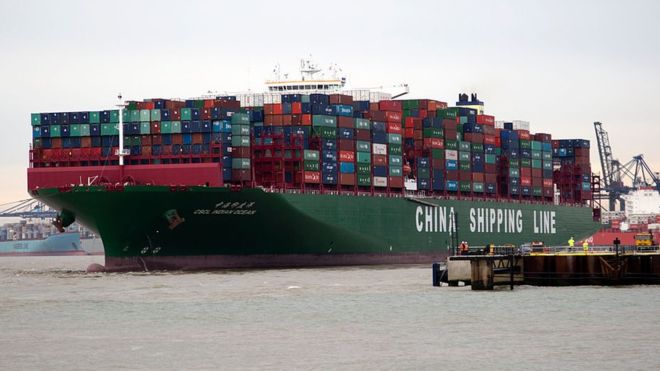Capitalism and the Coronavirus
4. How Globalism Has Helped the Spread of COVID-19
In his book The Division of Labor in Society, Emile Durkheim talked about how capitalism's division of labor would lead to globalization as our connections with other people would need to increase. He said that for the division of labor to work, "it is not enough for the society to comprise a large number of persons, but they must be in fairly intimate contact so as to act and react upon one another" (2007 [1893], 174). This is how our contemporary society has grown without falling out of order: our relations to one another are very important, even across borders. Normally this is beneficial to society as we rely on one another and create trades and markets between each other, however in the case of COVID-19 this has caused catastrophe. Jonty Bloom of BBC News says, "Easier travel, the world wide web, the end of the Cold War, trade deals, and new, rapidly developing economies, have all combined to create a system that is much more dependent now on what is happening on the other side of the world than it ever was" (2020). We also have faster and more frequent travel, meaning that because we have these relationships with each other across the globe and because travel is so accessible, the coronavirus was able to spread much more rapidly. In Bloom's article, Professor Beata Javorcik stressed that now more than ever has it been easier for the virus to spread, pointing out that "when we look back to 2003, at the Sars epidemic, China accounted for 4% of global output. Now China accounts for four times as much, 16%. So that means that whatever happens in China affects the world to a much larger extent" (2020). Durkheim was correct in stating that the division of labor would lead to a larger and faster-paced market, and it is this same type of market that has lead to the coronavirus being able to spread so rapidly and globally.
Bloom, Jonty. 2020. "Will coronavirus reverse globalisation?" BBC News, April 2, 2020. https://www.bbc.com/news/business-52104978.
Durkheim, Emile. 2007[1893]. "The Division of Labor in Society." In Classical Sociological Theory, edited by Calhoun et al, 158-78. 2nd ed. Malden, MA: Blackwell.
Durkheim, Emile. 2007[1893]. "The Division of Labor in Society." In Classical Sociological Theory, edited by Calhoun et al, 158-78. 2nd ed. Malden, MA: Blackwell.
5. How America's Federal Bureaucracy is Failing
Max Weber defined bureaucracy as the "means of transforming social action into rationally organized action" and a "power instrument" for those who control the "bureaucratic apparatus" (2014, 95). Although it is efficient, people don't like bureaucracy because of how rigid its structure is, especially in a society revolving around capitalism and the free market. In an article for the Washington Post, Teal Arcadi and Casey Eilbert detail how many past presidents have tried to limit the federal bureaucracy in favor of capitalism. They note how Bill Clinton in particular said he wanted to eliminate federal government bureaucracy and "replace it with the practices of 'a big venture capital outfit'" (2020). All of this has led up to our current president, Donald Trump, who "campaigned against 'the deep state' with promises of 'draining the swamp' in Washington" (Arcadi and Eilbert 2020). This relates back to Weber and the coronavirus because Weber specifically says that "the material fate of the masses depends upon the continuous and correct functioning" of bureaucratic organizations (2014, 96). If our federal government is disbanding their bureaucratic organizations during this time, our capitalistic society will not have enough structure to keep us afloat. One of the specific ways this has happened was through the disbanding of the U.S. Pandemic Response Team by President Trump (Arcadi and Eilbert 2020). Because our government has been trying to limit bureaucracy for some time now, our systems are not organized enough to handle this large of a crisis. Because bureaucracy usually values instrumentally rational actions above all else, it is actually what we need in a time when instrumentally rational action is the best option.
Arcadi, Teal and Casey Eilbert. 2020. "Dismantling the federal bureaucracy has left us all vulnerable to covid-19." The Washington Post, March 24, 2020. https://www.washingtonpost.com/outlook/2020/03/24/dismantling-federal-bureaucracy-has-left-us-all-vulnerable-covid-19/.
Weber, Max. 2014. "Bureaucracy." In Readings in Social Theory, edited by James Farganis, 89-100. New York: McGraw Hill.
Weber, Max. 2014. "Bureaucracy." In Readings in Social Theory, edited by James Farganis, 89-100. New York: McGraw Hill.



